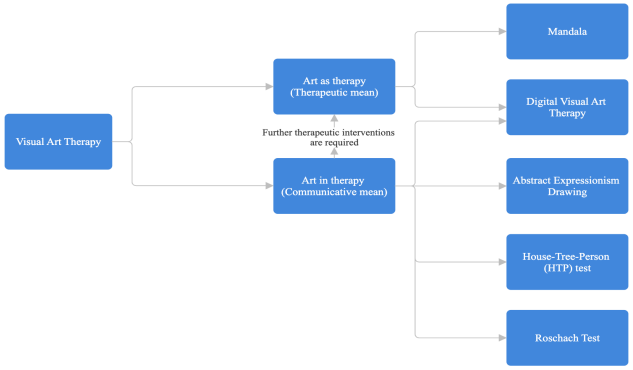

Volume 16 Issue 9
Published on October 2025The rapid expansion of China’s entertainment market and the intensifying commercialization of fan-idol relationships have created a fertile ground for the commodification of intimacy. Employing an anthropological framework, this study investigated the micromechanisms of this process as observed in fan meet-and-greets. Through participatory observation, in-depth interviews, and discourse analysis of online communities, the analysis revealed a complex economy of affect. Event organizers employed "stratified rituals" (e.g., tiered ticketing, coded wristbands) to convert Bourdieusian symbolic capital into measurable economic value, thereby constructing a pricing system based on "emotional currency". Drawing on Foucault’s concept of disciplinary power, the study illustrated how staff members standardized emotional production through the micromanagement of interactions, while Goffman’s dramaturgy elucidated the performative nature of these curated exchanges. Concurrently, the research documented how fans proactively carved out spaces of resistance through informal economic practices, such as the black-market trading of wristbands and the resale of exclusive benefits. Crucially, the study identified that these commodified interactions often culminated in emotional alienation, manifesting as "emotional inflation" and "post-meet-and-greet depression". This paper argued that such industry practices not only commodified emotions but also fundamentally challenged relational ethics. In response, it proposed an "exploitation-alienation-reconstruction" analytical framework, offering a critical lens for understanding the emotional politics of contemporary hybrid economies.

 View pdf
View pdf



Studies have indicated an increasing prevalence rate of internalising disorders, such as depression, anxiety, and traumatic stress disorder, particularly among adolescents and individuals with communication difficulties. These disorders are often exacerbated by social factors, including the rise of social media, academic pressures, and social isolation, which contribute to emotional distress and withdrawal. While traditional talk therapies, including cognitive behavioural therapy (CBT) and interpersonal therapy (IPT), are proven to be effective in treating such disorders, groups experiencing communication difficulties may benefit little. The essay aims to review Visual Art Therapy (VAT) as an alternative treatment that focuses on treating the comorbidity of internalising disorders and communication deficiencies. By systematically reviewing existing research, the essay finds that Art in Therapy and Art as Therapy, as forms of VAT that have slight differences in focus, perform at similar levels of great effectiveness for patients with communication difficulties. This review highlights the potential value of VAT as an alternative treatment, allowing therapists to choose from a wider range of therapeutic means and better accommodate patients who struggle with verbal expression.

 View pdf
View pdf


This study investigates the negotiation of sexually transmitted infection (STI) protection among Chinese lesbian women in intimate relationships using in-depth interviews and discourse analysis based on the symbolic interactionism, impression management theory and the Health Belief Model. The theoretical framework is applied to explain the effect of social norms, cultural taboos, personal experience, and interpersonal dynamics on safer-sex communication. Most participants framed protection issues frankly, but the discussion that followed was superficial. Others applied subtle or humorous strategies or drew on media content to relieve awkwardness; others employed educational or fear-based tactics. However, a considerable proportion were more sensitised to the interpersonal costs of protection-seeking, fearful that protection-seeking would erode trust, be seen as suspicious or withdrawn, or damage their ideal partner image. Heteronormative norms and sexual taboos within Chinese society supported these fears, while the marginalisation of lesbian identities only made negotiation more challenging. Negotiation was also influenced by power imbalances where one party is typically responsible for health, yet has no ultimate authority. In general, negotiation was weak when both partners lacked trust and were stigmatised, but became freer when partners developed intimacy and risk awareness. The research provides feasible recommendations for culturally sensitive, lesbian-inclusive sexual health education and interventions, which focus on reducing stigma, enhancing negotiation proficiency, and enabling equal decision-making. It also broadens the scope of health communication studies by demonstrating how risk perception, trust and gendered responsibility interconnect in non-Western settings, deepening symbolic interactionism and the theory of impression management.

 View pdf
View pdf


Drawing on Parasocial Interaction (PSI) theory, this study examines the relational mechanisms between virtual idols and fans across cognitive, emotional, and behavioral dimensions. The findings reveal that, empowered by digital technologies, interactions between virtual idols and fans exhibit characteristics that transcend the traditional one-way model. On the cognitive level, anthropomorphic design strategies and fan co-creation blur the boundaries between the virtual and the real, as fans engage in “demediation” and perceive virtual idols as credible “digital life forms.” On the emotional level, virtual idols provide a form of “simulated reciprocity” that is both minimizing social risk while maximizing emotional reward, effectively fulfilling users’ needs for companionship and belonging—particularly among socially anxious groups—while also carrying potential risks of heightened “media dependency” and intensified feelings of real-world loneliness. On the behavioral level, fans build an active “participatory culture” through consumption, engagement, and secondary creation. Yet, under the joint influence of capital and subcultural dynamics, these behaviors also show tendencies toward “consumer alienation” and “group polarization.” This study demonstrates that parasocial interactions in the context of virtual idols have evolved into a deeply involved and socially influential composite practice, thereby extending the explanatory scope of PSI theory in the age of artificial intelligence. The paper concludes with recommendations for future research directions and the cultivation of a healthy fan culture.

 View pdf
View pdf




